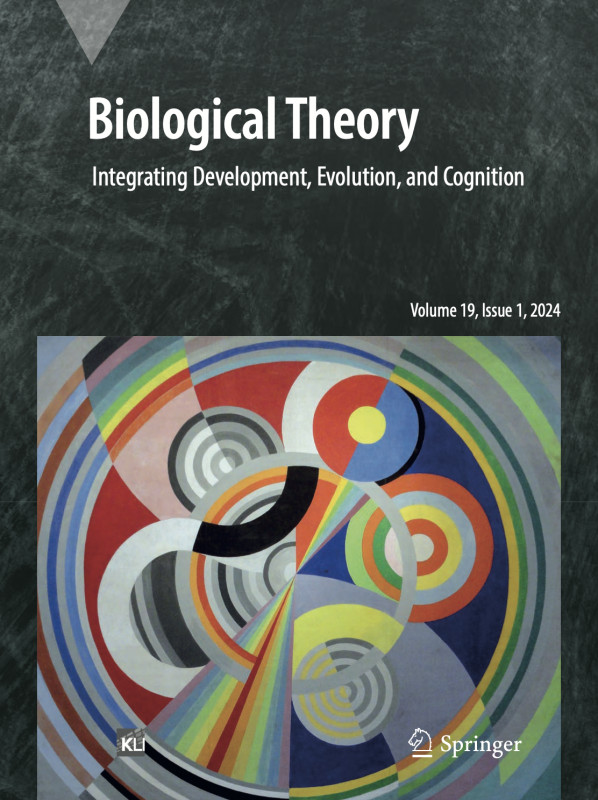News Details

Biological Theory’s 19(1), March issue features a thematic section on “Concepts of Agency” with an introduction by guest editor Lenny Moss. In the section, Samir Okasha discusses the motivations for the concept in biology, and a 4-fold typology of minimal, intelligent, rational, and intentional agents. Louis Virenque and Matteo Mossio examine agency in the framework of autonomy theory, while Andrew Pickering explores agency’s uses in science and technology studies, ranging from a primordial concept relating to an “ontology of liveliness,” to a higher-level concept encompassing cybernetic machines. Lastly in the section, Richard Watson looks at agency in relation to problem-solving competencies in biological systems in relation to part-whole relationships.
The issue includes a new article for the “Classics in Biological Theory” collection, revisiting an 1878 paper, “The Relation of Animal Motion to Animal Evolution,” by the evolutionary theorist Edward D. Cope. George McGhee, himself a visionary paleontologist, suggests that Cope’s ideas anticipated niche-construction theory and reciprocal causation, developmental bias and nonrandom phenotypic variation of what has come to be referred to as the Extended Evolutionary Synthesis. McGhee completed the essay in his last year of life, and we include a tribute to him in the issue.
Also in this issue, Tamar Schneider looks at how microbiomes function in a host in relation to physiology and the etiology of disease, arguing for an ecological understanding of their function. Finally, Antonella Tramacere and John Bickle discuss “neuroepigenetics” as an extension of developmental epigenetics. They apply the concept to studies of fear and stress responses to critique popular “mechanist” accounts and propose a philosophical reframing of these questions.

